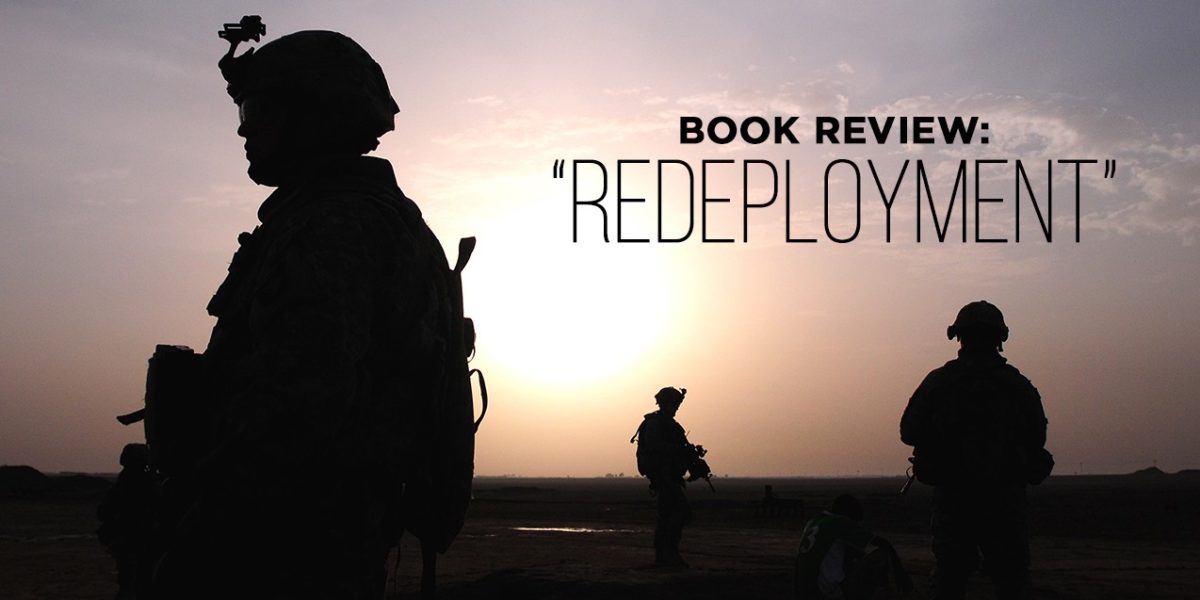I read Phil Klay’s story collection Redeployment shortly after seeing the film American Sniper, acting on an impulse to learn more about the modern day warfighter. This book taught me more about the War on Terror and its effects than any documentary or memoir ever could.
The War on Terror cannot be summed up in one narrative. No person’s account is any more or less true than any other’s. Phil Klay, an Iraq vet himself, makes this sentiment the main reason why Redeployment exists. The book shows a multiverse of perspectives that aim for a deeper understanding of this chaotic and strange war in which so many young people found themselves. From front-line Marines to Army artillerymen, to military chaplains and private contractors, Redeployment is a kaleidoscope of viewpoints, each with a different lesson to take away.
Such as this one: There are three things you should never say to a veteran, especially a combat veteran:
“Did you ever kill anyone?”
“Do you have PTSD?”
Or any political opinion whatsoever.
It’s only natural to be curious, but when talking to veterans, it’s often best to dial back the inquiry. In some cases, it may not even be wise to thank them for their service, a phrase some veterans view as ignorant, or worse, self-serving. There are numerous examples of veterans contending with an ignorant, or even apathetic public in this book. Klay authoritatively presents story after story of people who return from under the oppressive Iraqi sun to the more temperate climates of Hometown, USA. They find their lives forever altered by their experiences, and often return to people who simply can’t understand what they went through.
In one story, a PsyOps Marine from the Second Battle of Fallujah encounters a stereotypically liberal college girl. In another, a ditzy student chases a “human interest” piece by asking a veteran to recount the moment his convoy was IED’d. There’s a story about a veteran seeking a career in the New York financial industry surrounded by an apathetic public swarming around him in bars and boardrooms.
In other stories, Klay offers glimpses of FOB life between missions. In the entire book, there’s maybe two instances of actual combat. Descriptions of gunfire and engagements are less important to the book than the emotional impact they have. Most of the narrative is spent in the men’s heads. The stories here are neither fictional nor nonfictional, evoking comparisons to Tim O’Brien’s Vietnam classic The Things They Carried. My personal favorite is “Prayer in the Furnace,” a story about an Army chaplain contending with the existential crises of both the men in his unit and his own faith. Another notable detouring chapter is “Money as a Weapons System,” a dark and comedic take on the USA’s convoluted attempts to democratize Iraqi communities.
As a collection, Redeployment is about the young people who go to war because they were ordered to, not necessarily because they felt a patriotic fervor that drove them there. If memory serves me right, I can recall no reference to 9/11 or anyone enlisting as a result of it. The all-volunteer military is on full display here, but there’s less emphasis on why these people served and more on what their service did to their souls.
It’s the kind of book that every America-loving, patriot should read, if only for the humbling effect it has on national pride. It’s neither pro-war nor anti-war, and it’s not a massive thousand-page treatise on armed conflict like War and Peace. Instead, Redeployment is a weekend read which uses meditative vignettes to attempt to understand a war which continues to elude explanation.
